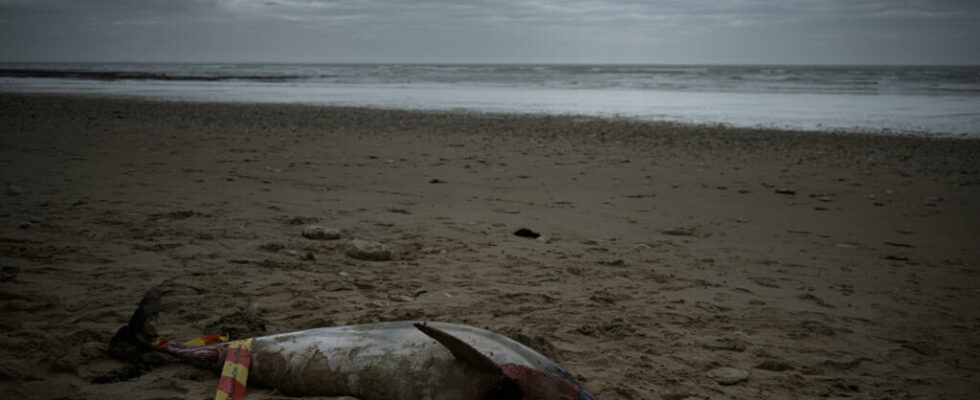The Council of State confirmed on December 30, 2024 “ the need for a fishing closure in the Bay of Biscay » for four weeks « during the winter “. The goal: to protect dolphins from accidental capture by fishing boats.
3 mins
After several appeals from environmental and animal rights NGOs such as France Nature Environment (FNE) or Sea Shepherd France, the highest administrative court, the Council of State, had already forced France to close the Bay of Biscay to fishing. for all vessels over 8 meters from January 22 to February 20, 2024: this measure applied in 2024 and is likely to be renewed in 2025 and 2026.
Also readFishing: Bay of Biscay bans fishermen for a month to protect dolphins
In a new decision Monday December 30, the Council of State confirms “ the need for a fishing closure » to protect the dolphins and the harbor porpoise in this area, stressing that scientific observations for the winter period of 2024 had shown “ a significant drop in mortality of small cetaceans due to accidental capture “.
Vessels over 8 meters, with the exception of those fishing by line or trap, will have to remain at the quayside for a particularly sensitive period. Romain Ecorchard from France Nature Environnement points out the “ interactions between fishing nets and populations of dolphins and porpoises » and underlines the effectiveness of the moratorium at the start of 2024 since “ the number of captures was around 2,000 cetaceans “, he argues, against “ usually between 5,000 and 10,000 “.
“ Opposition on the merits » fishermen
The fishermen working in this area, while “ taking note » of the decision of the Council of State, maintained Monday evening their “ opposition on the merits » to such closures. They particularly regret that the highest French administrative court “ did not agree to the maintenance of exemptions for ships equipped with mitigating devices or cameras », According to a press release from the National Committee for Maritime Fisheries and Marine Farming (CNPMEM).
The profession is calling for the publication of data from the Pelagis marine mammal observatory. Johnny Wahl of the Synadepa union wonders how we can “ stigmatize an entire profession, prohibit going to sea and refuse to communicate his work on which he bases himself to say that it is the fault of the fishermen “.
Serge Larzabal, president of the Regional Maritime Fisheries Committee of Nouvelle-Aquitaine, is also opposed to the moratorium. “ The solution is what professionals have been doing for six or seven years: equipping themselves with a certain number of tests, medium mitigation equipment, or cameras » making it possible to bring “ data to minimize catches as much as possible “. France Nature Environnement and Johnny Wahl consider these measures to be ineffective.
“ Judicial closures will never provide solutions for the Bay of Biscay fishing industry », sweeps away the National Committee for Maritime Fisheries and Marine Farming, which declares itself “ vigilant on the sustainability of compensation for fishermen in 2025 And 2026 » in a tense national budgetary context. The profession also highlights the impact of the moratorium on local auctions and fishmongers.
Also readStranded dolphins: after the decision of the Council of State, a difficult compromise between NGOs and fishermen
